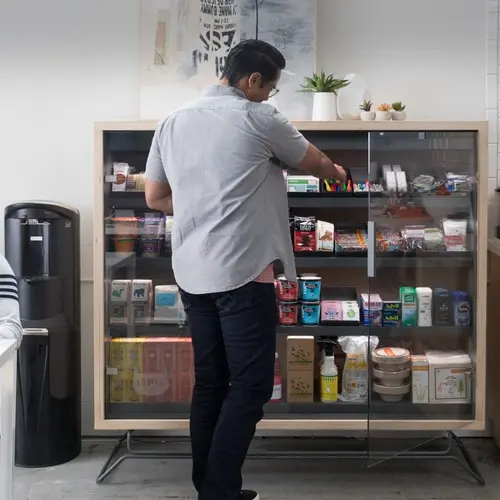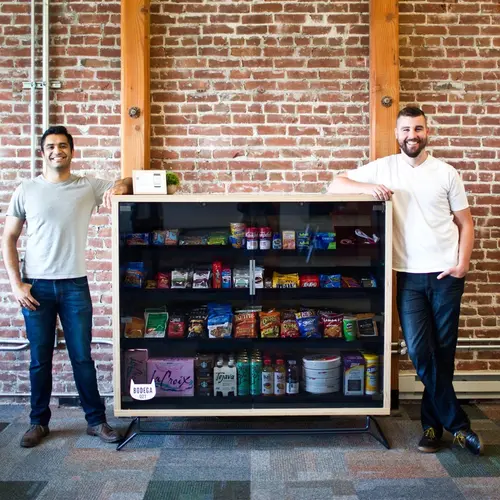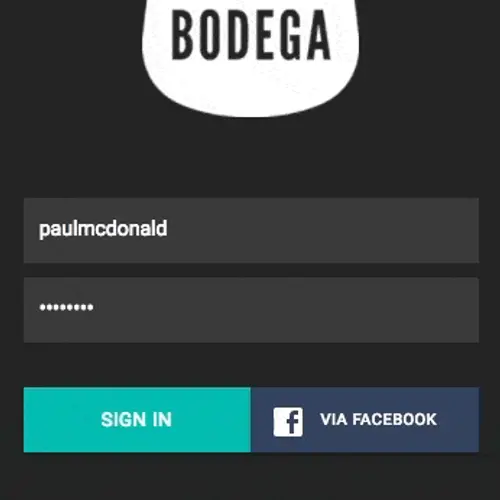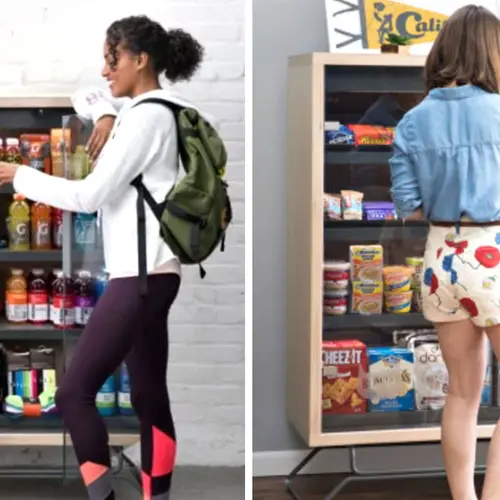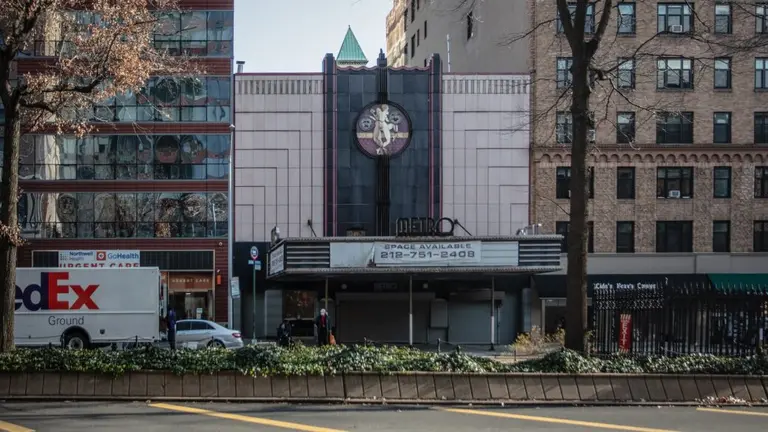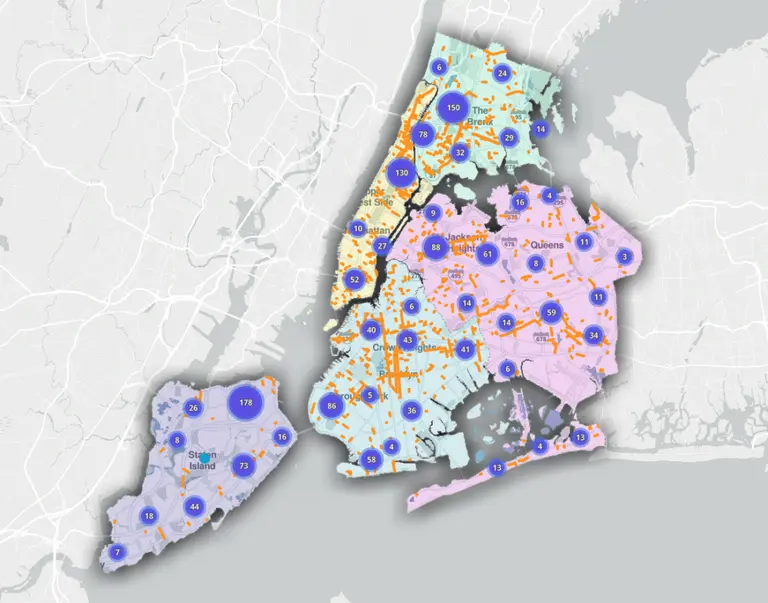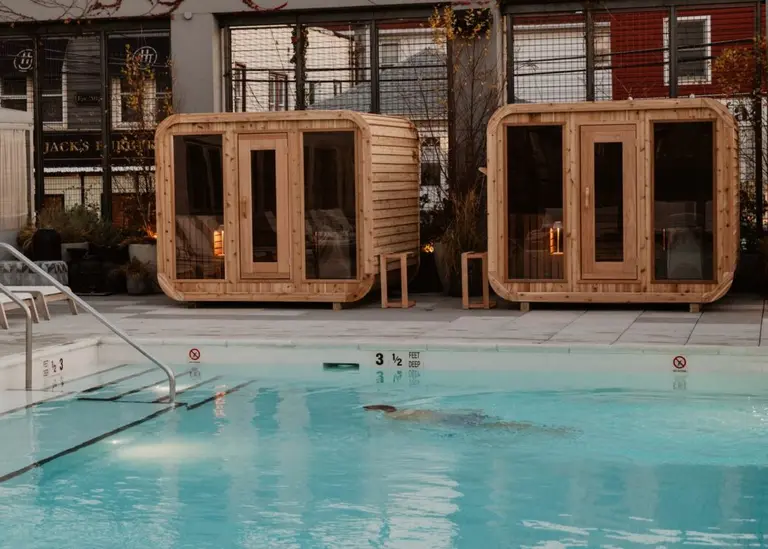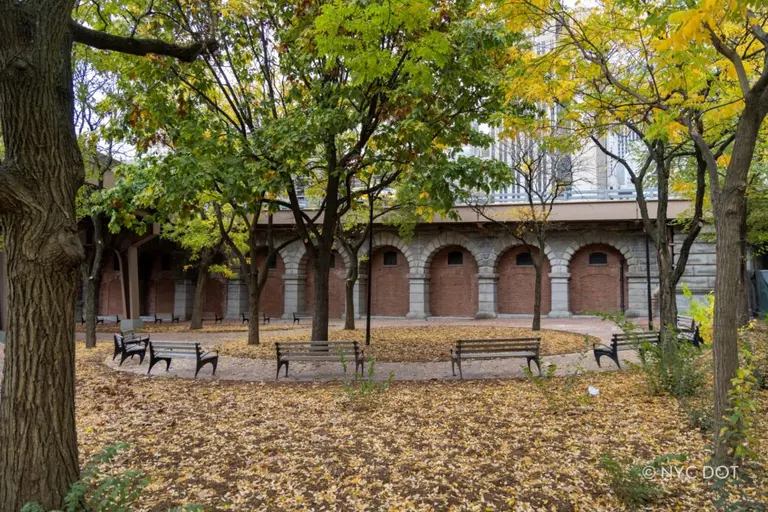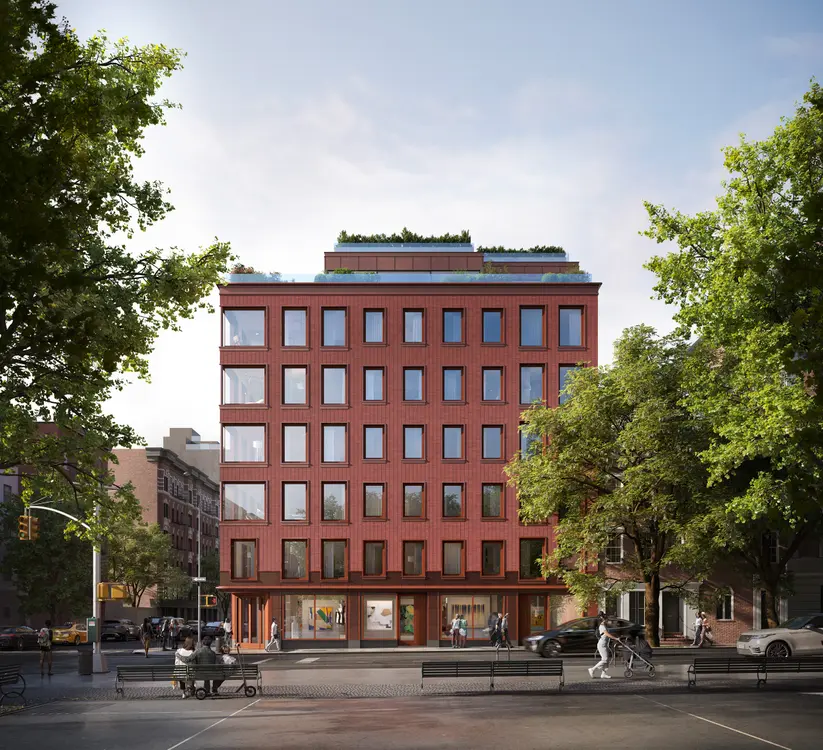‘Bodega’ mobile pantries want to replace your local convenience store
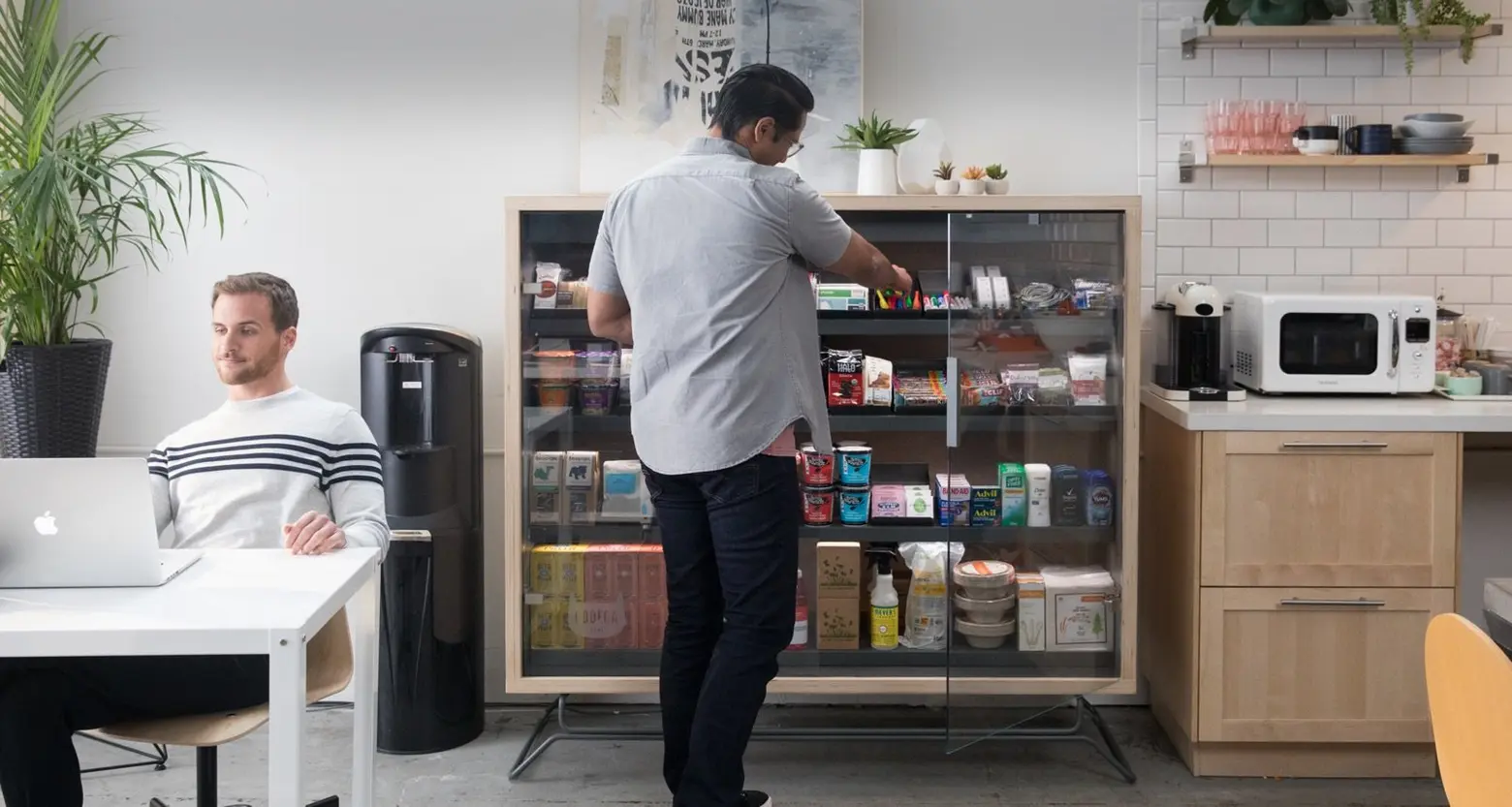
Image via Bodega
The loss of small businesses throughout cities nationwide is already an escalating issue to rising rents and online delivery platforms, but more and more new physical business models are also looking to edge out mom-and-pops and brick-and-mortar retail establishments in general. Take for example a new startup called Bodega, which, you guessed it, wants to replace your actual bodega (they’ve even made their logo a “bodega cat”). Started by two former Google employees, the concept puts unmanned pantries in offices, gyms, dorms, or apartment buildings and stocks them with convenience store staples like non-perishable snacks and beverages, toiletries, cleaning supplies, and even fitness equipment, using a special computer vision system to track purchases (h/t Fast Company).
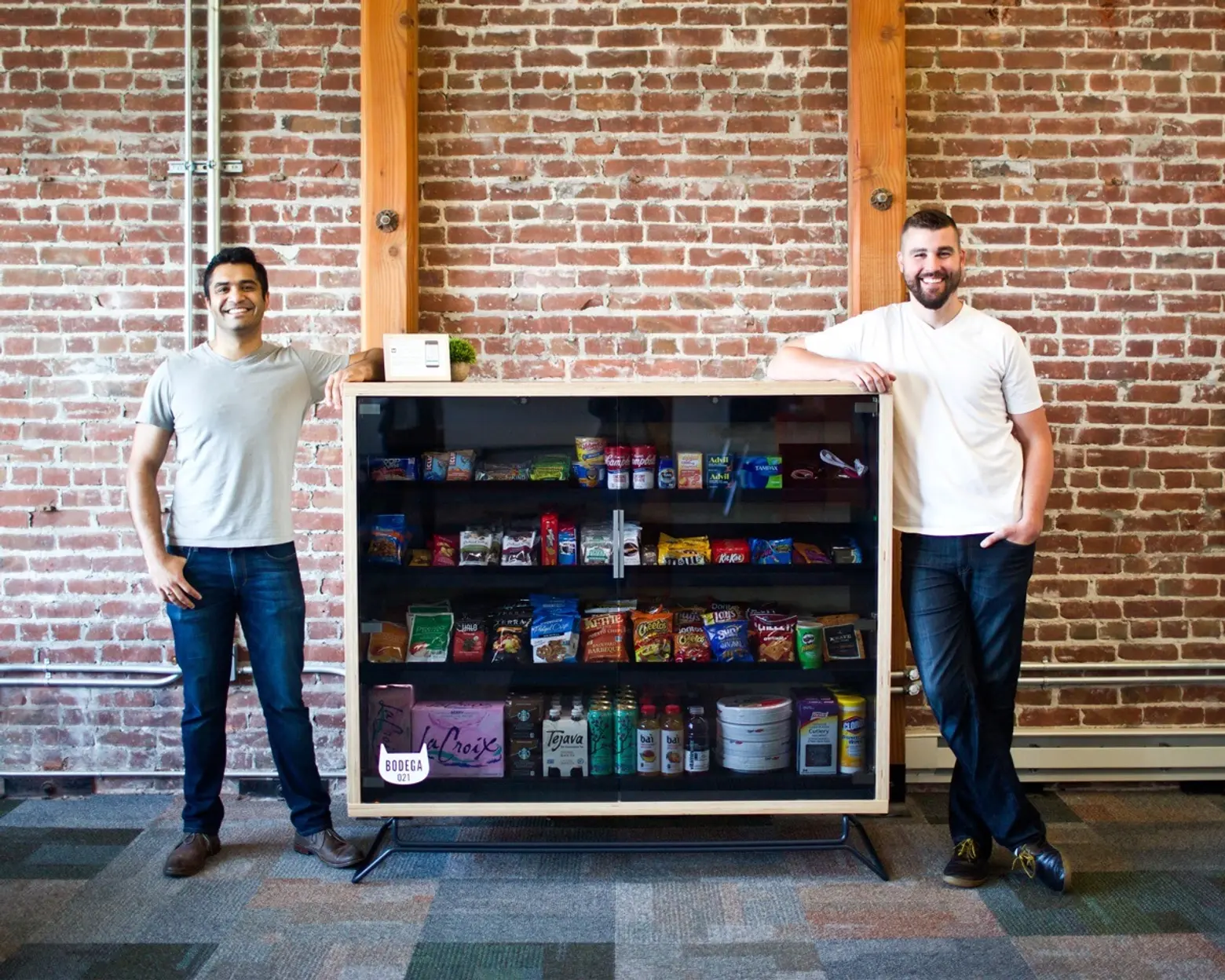
Ashwath Rajan (left) and Paul McDonald (right), via Bodega
“Eventually, centralized shopping locations won’t be necessary, because there will be 100,000 Bodegas spread out, with one always 100 feet away from you,” says co-founder Paul McDonald, who worked as a product manager at Google for 13 years. And he and his partner Ashwath Rajan have good reason to be so confident; they’ve already secured $2.5 million in funding to launch the concept from several big-name investors and from angel investment by senior executives at Facebook, Twitter, Dropbox, and Google.
So for the past 10 months, McDonald and Rajan have been testing Bodega at 30 Bay Area locations, honing in on the 100 items that a given community or locale needs or wants. As Fast Company explains, “In a sorority house, for instance, young women might regularly purchase pretzels, makeup remover, and tampons. Meanwhile, in an apartment block, residents might regularly buy toilet paper, pasta, and sugar.”
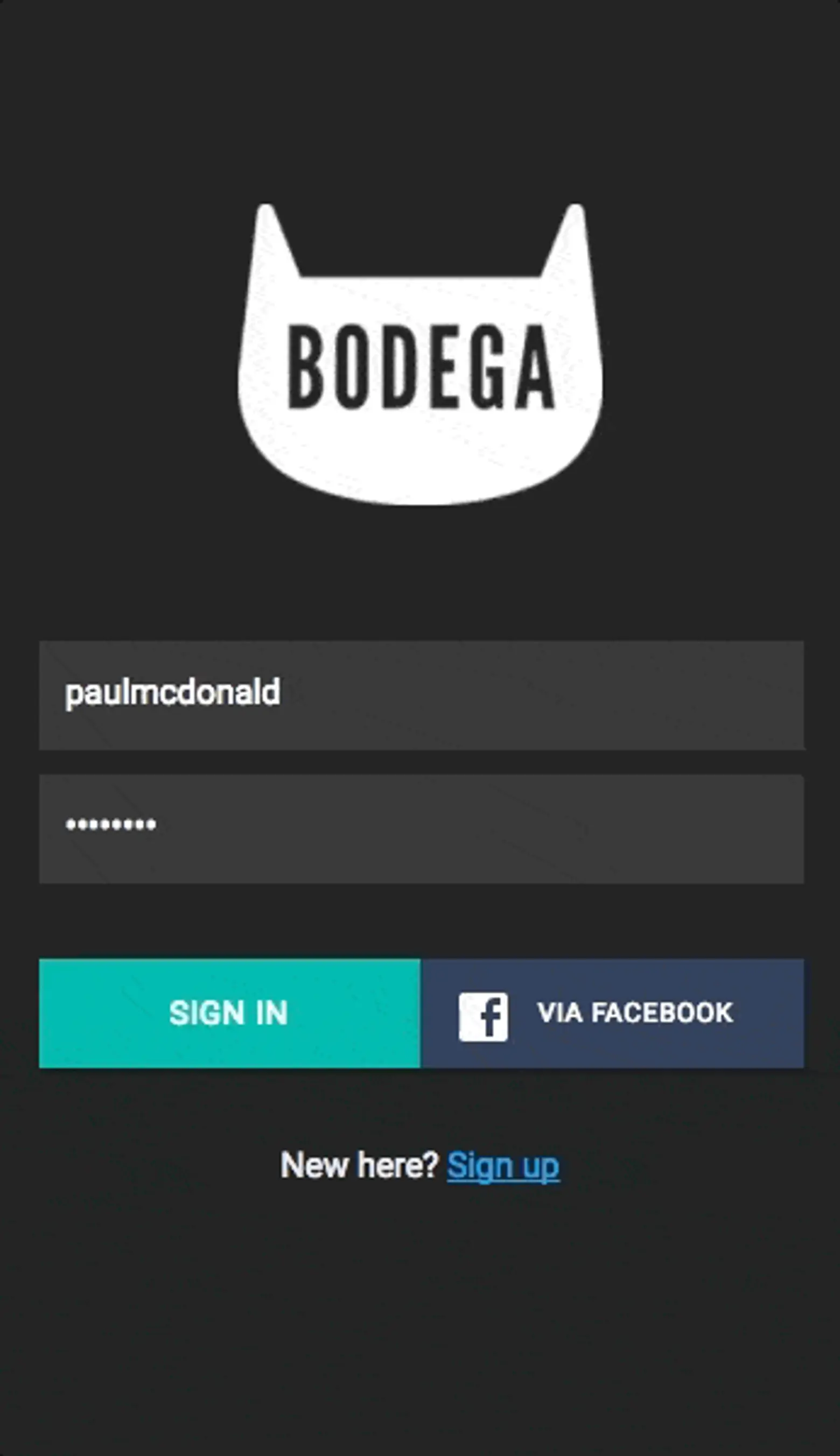
Via Bodega
As for the logistics, an app allows users to unlock the five-foot-wide pantry and computer vision cameras register the items taken and charge a credit card on file. When an item gets bought, Bodega receives a notification to restock it.
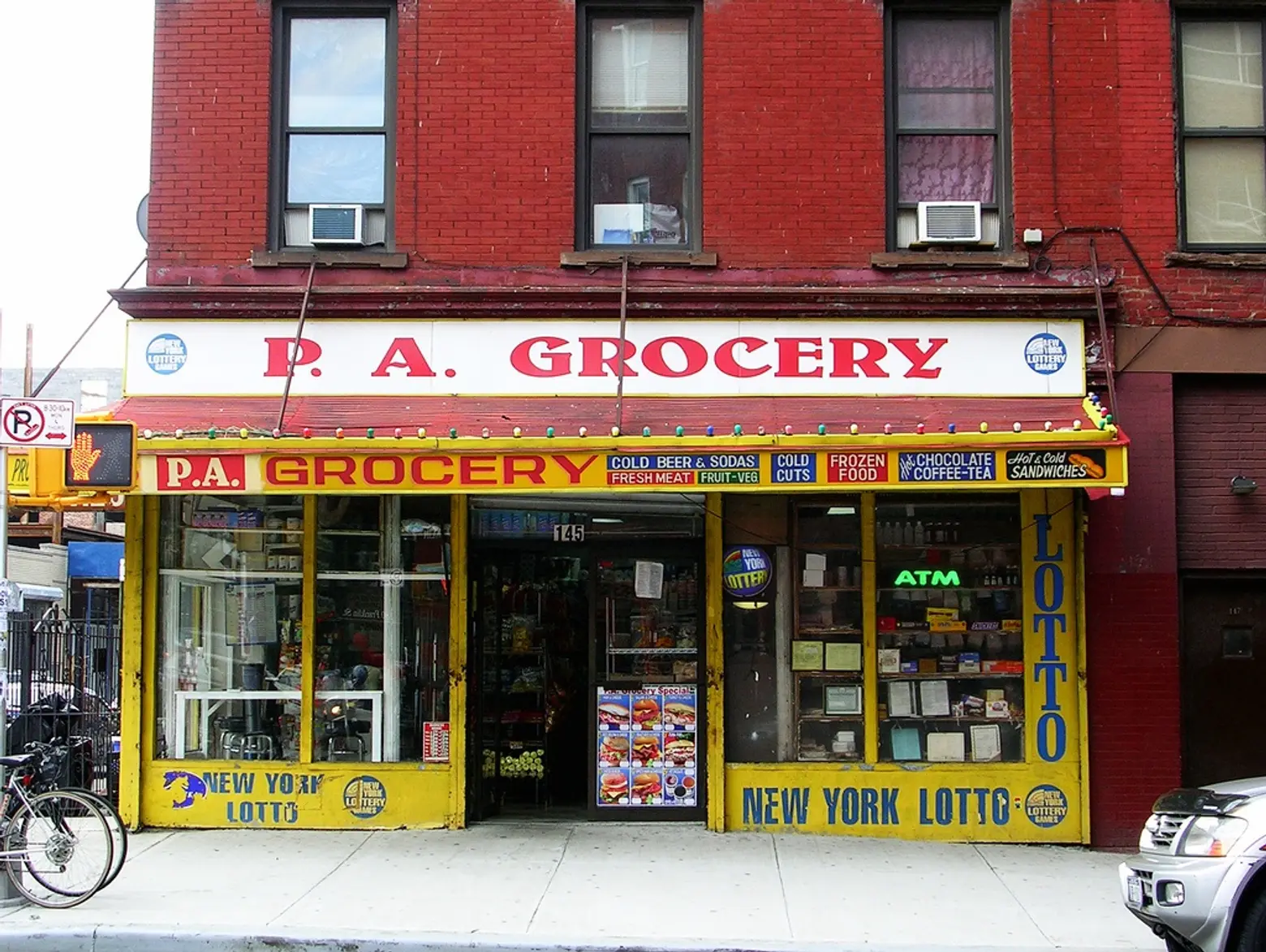
A brick-and-mortar bodega in NYC via s o d a p o p/Flickr
The idea is not without its critics. Not only for the fact that it’s another nail in the coffin of local businesses but for what some perceive as a culturally insensitive name. The term bodega has roots in the Latin American and Asian communities who historically have run small convenience stores and delis. Frank Garcia, chairman of the New York State Coalition of Hispanic Chamber of Commerce which represents thousands of bodegas, told Fast Company, “it is offensive for people who are not Hispanic to use the name ‘bodega,’ to make a quick buck. It’s disrespecting all the mom-and-pop bodega owners that started these businesses in the ’60s and ’70s.” He said he’d even go as far as to ask his members throughout New York not to allow the Bodega pantries in their establishments. “Real bodegas are all about human relationships within a community, having someone you know greet you and make the sandwich you like,” he said. Moreover, as 6sqft previously reported, in 2015 alone, more than 75 of NYC’s roughly 12,000 bodegas have closed, many in uptown neighborhoods like Inwood, Washington Heights and Harlem.
But McDonald says he’s “not particularly concerned about it,” noting that surveys his company conducted in Latin American communities concluded that 97 percent felt the name did not have negative connotations.
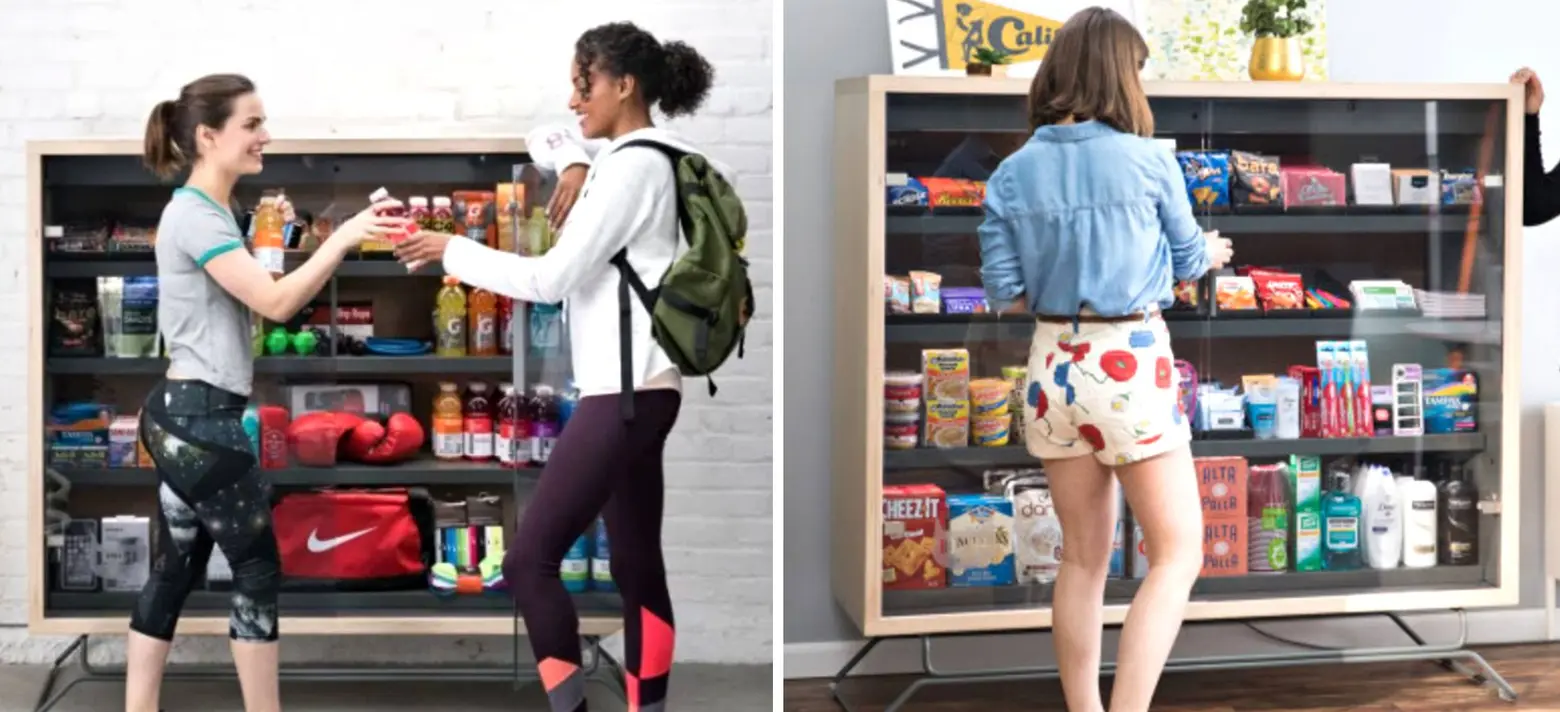
Via Bodega
Another way McDonald thinks he can push his concept forward is through partnerships with larger retailers who may be trying to keep up with e-commerce sites such as Amazon. He gave the examples of Home Depot setting up Bodegas at construction sites or GNC at gyms.
As of today, Bodega is in 50 more locations on the West Coast and has plans to have more than a thousand nationally by the end of next year.
[Via Fast Company]
RELATED:
